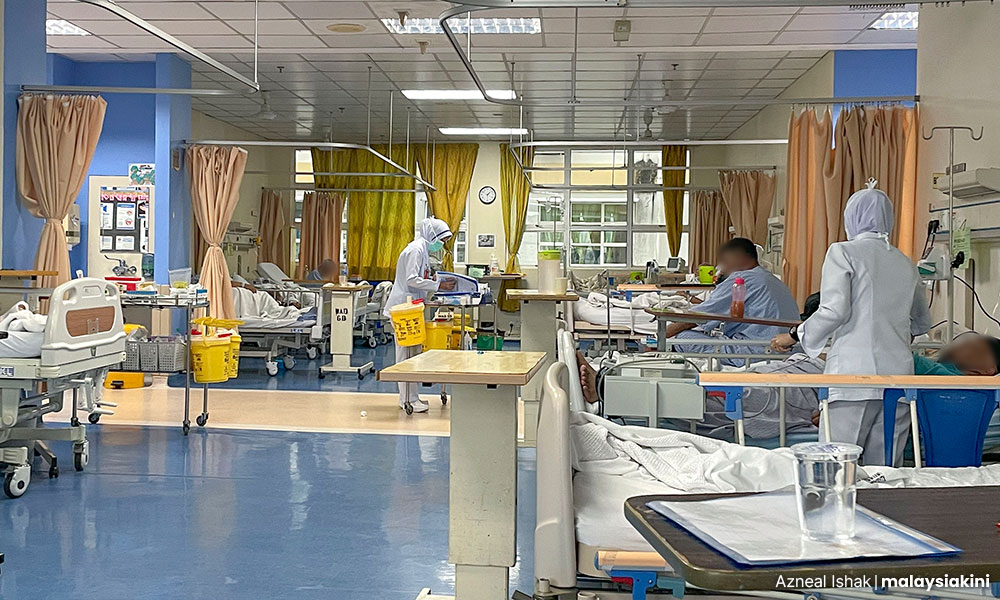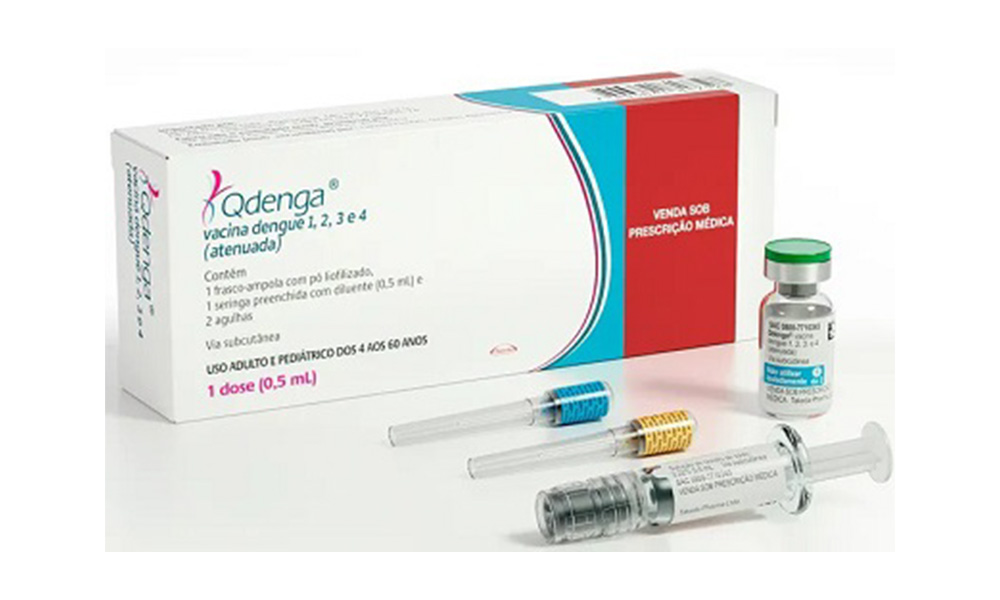A global dengue outbreak of 500 million cases with over 5,000 deaths was reported in 2023 from 80 countries in every region of the world except Europe.
The surge of dengue cases seen in 2023 is part of a global phenomenon fuelled by the climate crisis.
Brazil alone reported 364,855 dengue cases in the first five weeks of 2024, four times more than the same period in 2023. Three Brazilian states have declared emergencies and have begun to roll out the dengue vaccine.
Malaysia is no exception to this wave of dengue fever. A total of 123,300 dengue cases were reported in 2023, resulting in 100 deaths, compared to 66,102 cases, with 56 deaths in 2022. This is a humongous 86 percent and 78 percent increase in dengue cases and deaths.
I am sure that virtually every person has either had dengue or whose family member or friend had dengue, or was hospitalised for it, or suffered from complications of the disease or succumbed to the disease syndrome.
Therefore, the awaited conditional approval of Takeda’s Qdenga dengue vaccine by the Drug Control Authority (DCA) is a most welcome breakthrough, an invaluable armamentarium in our war against dengue.
Even though the overall efficacy (61.2 percent) is not as high as the efficacy of most paediatric vaccines we are familiar with, the dengue vaccine nonetheless demonstrates a profile of clinical efficacy that was worth considering as a public health tool by the World Health Organization and the European Medicines Agency (EMA).
The 4.5-year study results from a phase 3 double-blind, randomised, placebo-controlled trial in children and adolescents aged four to 16 years showed that the administration of the quadrivalent dengue vaccine reduced the rate of dengue-related hospitalisations by 84.1 percent. This would reduce the demand for our hospital beds.

Both the reduction in the number of dengue cases and dengue-related hospital admissions would further help to spare more Malaysians from the morbidity (illness) and mortality (deaths) associated with the disease syndrome
No serious AEFI
Another aspect of the vaccine which is equally important is that no serious adverse events following immunisation (AEFI) were reported. In particular, there was no evidence of dengue disease enhancement and no increased risk of hospitalisation in Takeda’s Qdenga vaccine recipients.
This phenomenon called Antibody Dependent Enhancement (ADE) was seen with an earlier dengue vaccine and pre-vaccination screening was recommended and only persons with evidence of a past dengue infection would be vaccinated.
The WHO’s Strategic Advisory Group of Experts (SAGE) has endorsed the use of Takeda’s QDenga vaccine without pre-vaccination screening.
The performance of the dengue vaccine is best in populations with a high disease burden. Where the proportion of dengue-positive people (seroprevalence) is in excess of 60 percent, the WHO has recommended countries consider using the dengue vaccine.
In the Damansara Damai study, out of 85 respondents who agreed to participate in the dengue seroprevalence study, 74.1 percent (n = 63) were positive for dengue IgG and 7.1 percent (n = 6) were positive for dengue IgM.
A population-based cross-sectional study in the Petaling district, conducted from Aug 18 to Oct 26, 2018 with 533 participants, showed a seroprevalence of 79.0 percent.
Depending on the population being studied, the seroprevalence of dengue in Malaysia varies from 28-94 percent, and over 90 percent of individuals above 60 years of age have been noted to be seropositive for dengue.
It may therefore be useful for the Health Ministry to pilot study the dengue vaccine in hot spots with a seroprevalence of more than 60 percent prior to its consideration for the National Immunisation Programme (NIP).
Except for the Covid vaccines, most of the vaccines licensed by the DCA were first utilised in private healthcare settings prior to its incorporation into the NIP.
The Hepatitis B, Measles Mumps Rubella (MMR), Haemophilus influenza B, (HiB), Human papillomavirus (HPV) and Pneumococcal Conjugate Vaccines (PCV) were widely used by general practitioners and doctors in private clinics and hospitals before being included in the NIP in 1989, 2002, 2002, 2010 and 2019 respectively.
The Tetanus, Diphtheria, Pertussis (Tdap) vaccine in pregnant mothers and influenza vaccine in elder persons is now being seriously considered by the Health Ministry.
Cost-effective analysis required
I guess it will not be much different with the dengue vaccine. There will be selective usage in the ministry and wider utilisation in the private healthcare sector prior to its inclusion in the NIP.
A cost-effective analysis will be required to study the potential impact of the dengue vaccine.

The cost of dengue illness and vector control activities to prevent it was estimated at US$175.7 million a year in a 2015 study.
Two think tanks have suggested that there is an opportunity to reduce the economic burden of dengue by 50 percent if a previous dengue vaccine with an overall efficacy of 60 percent was approved for use. (7)
All recipients of the Takeda Qdenga vaccine are highly encouraged by their vaccinators to participate in an active surveillance study. With more extensive usage of the dengue vaccine, we would be able to pick up extremely rare AEFIs, which cannot be captured within the limited numbers of clinical trials.
This is a form of pharmacovigilance and post-marketing surveillance which would contribute invaluable information to the dengue real-world experience. - Mkini
DR MUSA MOHD NORDIN is a paediatrician at KPJ Damansara Specialist Hospital.
The views expressed here are those of the author/contributor and do not necessarily represent the views of MMKtT.



No comments:
Post a Comment
Note: Only a member of this blog may post a comment.